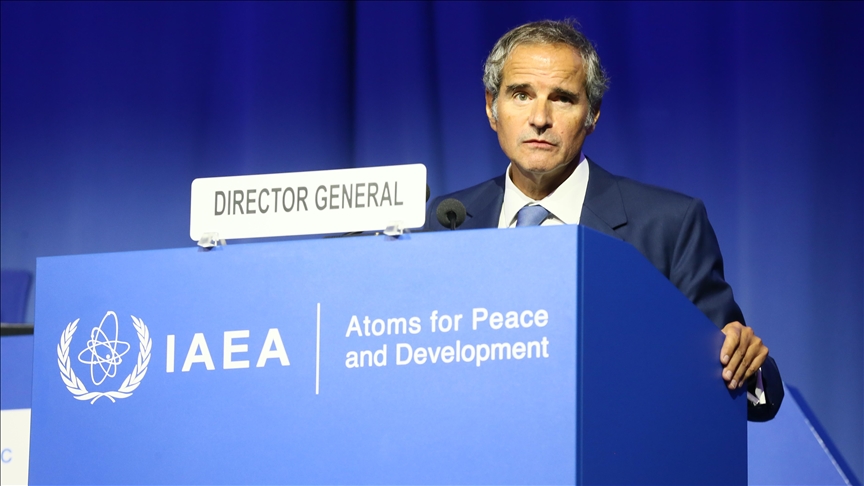Nuclear power returning to 'realism,' not renaissance, says UN nuclear agency chief
'All the big companies, Microsoft, OpenAI, Google, all of them signing very ambitious contracts with nuclear vendors,' says Rafael Mariano Grossi

LONDON
The head of the International Atomic Energy Agency (IAEA), Mariano Grossi, argued Monday that nuclear energy is regaining relevance globally, not as a “renaissance” but as a practical response to energy needs.
“You know when, when we hear this idea of nuclear renaissance, I rather talk about a return to realism,” he said at a security conference in Warsaw.
He stressed nuclear energy’s role in energy security and diversification. “One hundred nuclear power reactors are operating now, today, in Europe. In 12 of the 27 countries, nuclear energy today now is producing a quarter of the total energy of this continent and half of the clean nuclear energy.”
Grossi pointed to renewed commitments from European nations. “France comes with the new EPRs, the UK comes with Hinkley Point and Sizewell … Belgium has reversed the phase out, Switzerland, doing the same, Czechia and all of the other countries.”
A European Pressurised Reactor (EPR) is a third-generation pressurized water reactor (PWR) designed to enhance the proven technology of earlier models, while offering higher efficiency and incorporating advanced safety systems.
- Growing interest in nuclear worldwide
Beyond Europe, he noted growing interest worldwide. “There is hardly a week passes without me seeing an energy minister of African countries, Latin American countries, even Central American countries, that are looking at the new possibilities that are being opened.”
He highlighted a breakthrough on financing, saying, “This year … we signed an agreement with the World Bank that ended a decades-long policy of a ban. Can you imagine, anything that had the word ‘nuclear’ was banned … that changed, and now we see the African Development Bank, the Islamic Development Bank, the Latin American, the Inter American … all of them are coming on board.”
For the first time, he said, industry demand is driving the expansion. “For the first time, what we are seeing is demand-driven nuclear … all the big companies, Microsoft, OpenAI, Google, all of them signing very ambitious contracts with nuclear vendors.”
On security concerns, Grossi rejected the idea that nuclear plants are inherently vulnerable. “Nuclear infrastructure is as much a target as military decision makers decided to be. So, the problem is the war, not nuclear energy.”
Grossi insisted nuclear and renewables should complement each other. “We don't think it's one or the other. It's a matter of complementarity. We believe that nuclear is base load. So, we are very good with whatever you put on top of us.”
- Zaporizhzhia Nuclear Power Plant
In Zaporizhzhia, he confirmed the risks remain serious. “These days, I am dealing with the possibility we have a complete loss of outside power. At the moment, five days already … so we are trying to make sure that we don't have a problem.”
Highlighting the practical impact of his team’s presence, Grossi noted: “This issue that we are facing now of the post of the 10th blackout ... there is something dealing with that… we are not depending on one country giving us a narrative for another country.”
After large-scale Russian airstrike Sunday, the Zaporizhzhia Nuclear Power Plant in Ukraine has been disconnected from Ukraine’s power grid for five days, causing risks to nuclear and radiation safety.
Grossi insisted that engagement with both sides was essential: “On the basis of what my independent experts tell me, I can have an informed conversation with the President of the Russian Federation, with the President of Ukraine, and provide for solutions.”
Despite criticism for engaging with Moscow, Grossi insisted dialogue was essential. “If I don't talk to people, who do I talk to? This is essential … What is the purpose of the IAEA if I stay, you know, complaining together with Ukraine … and I do not have the opportunity to influence things in the right direction?”
Ukraine said Sunday that four people were killed and over 70 injured in a large-scale Russian airstrike that primarily targeted Kyiv.
Meanwhile, Governor Ivan Fedorov reported that at least 38 people were injured in Zaporizhzhia in an overnight attack.


